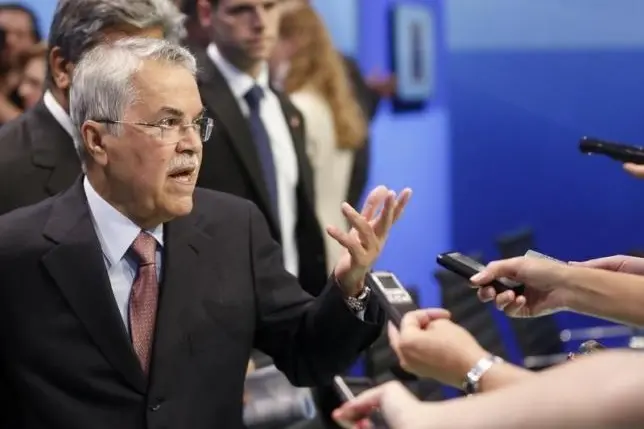PHOTO
(Adds Tasnee comment, background)
RIYADH, Nov 4 (Reuters) - Saudi Arabian Oil Minister Ali al-Naimi said on Wednesday the kingdom does not need to reduce the financial assistance it gives its citizens via low energy prices.
The world's top oil exporter is studying the possibility of increasing domestic energy prices, Naimi said a week ago, but analysts say this is most likely to happen via small increases in petrol prices and a rise in power costs for industrial, corporate and other large-scale users.
He rejected the notion that Saudi Arabia's low domestic energy prices constituted a subsidy, because petrol and electricity were sold for more than the cost of production.
The cost of producing a barrel of crude oil in Saudi Arabia is among the lowest in the world: "We assist our people in their livelihood. But that's not a subsidy," he said.
"You only go back and take away assistance if you are in dire need. And, fortunately, Saudi Arabia is not today in such dire need," he added.
The chief executive of National Industrialization Co
The drop in oil prices since June 2014 is starting to have a serious impact on state spending in the Gulf Arab kingdom and the government is taking measures to stem a budget deficit the International Monetary Fund estimates will be well over $100 billion in 2015.
(Reporting by Angus McDowall, Reem Shamseddine and Rania El Gamal; Editing by Dale Hudson and David Evans) ((Dmitri.Zhdannikov@thomsonreuters.com;))
Keywords: SAUDI ENERGY/SUBSIDIES
RIYADH, Nov 4 (Reuters) - Saudi Arabian Oil Minister Ali al-Naimi said on Wednesday the kingdom does not need to reduce the financial assistance it gives its citizens via low energy prices.
The world's top oil exporter is studying the possibility of increasing domestic energy prices, Naimi said a week ago, but analysts say this is most likely to happen via small increases in petrol prices and a rise in power costs for industrial, corporate and other large-scale users.
He rejected the notion that Saudi Arabia's low domestic energy prices constituted a subsidy, because petrol and electricity were sold for more than the cost of production.
The cost of producing a barrel of crude oil in Saudi Arabia is among the lowest in the world: "We assist our people in their livelihood. But that's not a subsidy," he said.
"You only go back and take away assistance if you are in dire need. And, fortunately, Saudi Arabia is not today in such dire need," he added.
The chief executive of National Industrialization Co
The drop in oil prices since June 2014 is starting to have a serious impact on state spending in the Gulf Arab kingdom and the government is taking measures to stem a budget deficit the International Monetary Fund estimates will be well over $100 billion in 2015.
(Reporting by Angus McDowall, Reem Shamseddine and Rania El Gamal; Editing by Dale Hudson and David Evans) ((Dmitri.Zhdannikov@thomsonreuters.com;))
Keywords: SAUDI ENERGY/SUBSIDIES





















